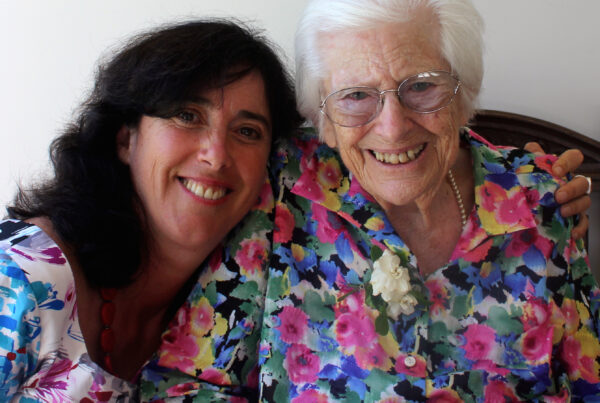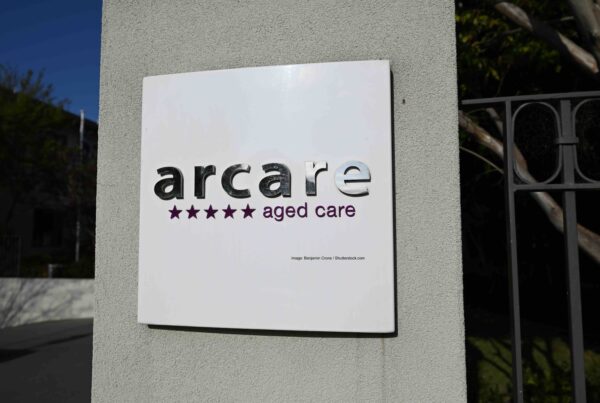The government has finally announced a royal commission into aged care. Although the terms of reference have not been announced, the royal commission needs to shine the spotlight on providers of both residential aged care homes and in-home aged care.
In response to all the heart breaking media reports, government and provider peak bodies continue to describe Australia’s aged care sector as ‘world class’. They claim a consumer driven, free market based aged care system will ensure the highest possible standards of care. However, the so-called “consumers” are often frail, elderly people, many with dementia. How did they expect such vulnerable people to demand a high quality service on the free market?
Troubling media reports have undoubtedly contributed to the government announcement of a Royal Commission. It is vital that incidents of inadequate personal care, negligence, neglect, abuse and assault are reported. However, we hear much less about elderly people who are living happily in an aged care home.
But the effect of only hearing horror stories is making some older people terrified of moving into an aged care home. An older woman told me recently she would prefer to kill herself than “go into one of those hellholes”.
Saturating the media with negative stories also demoralises staff who are often hard-working, dedicated people doing a very difficult job for not much pay. Many staff tell me they work in aged care homes because they “love caring for residents”.
My parents moved into an aged care home together. They chose the aged care home because they could sleep together in the same bed. They were both happy primarily because staff treated them with respect, kindness and love.
Mum and dad made lifelong friends with several residents – though many of these new friends did not live for long. After Dad died, I visited Mum most days around lunchtime. Mum did not have a large appetite – but she was always given a full portion at lunchtime so that I could eat her leftovers. The food was excellent.
When Mum sat in the lounge room, staff who walked past often took a moment to stop and have a short chat with her. This suggests there were enough staff on duty so they weren’t all rushed off their feet.
My research highlights the variability in standards of care in aged care homes. A current survey asks staff whether they would recommend the aged care home in which they work to their parents. Approximately half replied yes and the other half replied no.
This challenges the overly optimistic picture of the “world class” residential aged care sector – in some aged care homes, residents’ needs are unmet. Complaints are made when residents are not taken to the toilet or incontinence pads are not changed regularly, when call bells are not answered in a timely manner, when bruises appear or skin tears, and when pressure sores are not treated appropriately, in some cases turning gangrenous. Complaints are also made when residents suffer from malnutrition and/or dehydration and are chemically restrained.
My research also challenges the notion that aged care homes are all “hellholes”. Relatives describe aged care homes where residents are happy, well-fed and groomed, pleased to see staff members and call the aged care home their “home”. These aged care homes prioritise social engagement and physical activity. They provide an extensive range of activities that are not only fun but meaningful.
The difficulty is how to distinguish between good aged care providers and dodgy ones. Rebekha Sharkie’s private member’s bill is an important step. This bill requires every aged care home to disclose and publish quarterly staff/resident ratios.
This bill will provide certainty about the number of staff on each shift, including registered nurses. There is indisputable evidence to show that when registered nurses are on duty in aged care homes, residents have better outcomes. They have fewer pressure ulcers, lower rates of urinary tract infections and are less likely to lose weight. Care from registered nurses also results in fewer residents requiring transfer to hospital.
Currently aged care homes are not required to disclose their staffing levels. How can people make informed decisions about an aged care home’s standards of care when they do not have access to this vital piece of information?
A key to quality care in an aged care home is staff. Like all health and community services, well-trained, empathetic staff are the cornerstone of an aged care home. However, unlike hospitals and childcare centres, there is no federal legislative requirement for aged care homes to have mandated staff-to-resident ratios or skill prerequisites. The decision whether to have a registered nurse on duty is at the discretion of the provider.
The aged care minister, Ken Wyatt, claims: “There is no clear evidence or research that suggests implementing nurse or staff-to-patient ratios will actually increase the quality of care.” However, studies in USA provide clear evidence of a positive relationship between the quantity of staff and quality of care.
Aged care homes with high numbers of well-trained staff have nothing to fear from this private member’s bill. It is only unscrupulous providers – particularly those who do not have a registered nurse on site at all times – who will be lobbying furiously to have this bill rejected or buried in yet another inquiry.
The claim that ratios are a blunt instrument is correct. However, the claim that sharing data about staffing levels will be further work for staff is nonsense. Government and financial agencies already collect data on staffing levels and other quality indicators such as medication errors, pressure sores and falls. But this data is currently hidden from the public.
Increased transparency is vital for evidence-based discussions about how to provide the best possible care for frail, elderly people who live in aged care homes. It will also ensure good providers flourish while those unscrupulous providers who value profits over care will not.
First published in The Guardian on 16 September 2018



